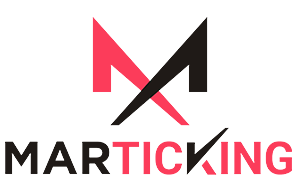In the dynamic landscape of software-as-a-service (SaaS) companies, having a robust SEO strategy is crucial for driving organic traffic, boosting brand visibility, and ultimately, enhancing conversions. In this comprehensive guide, we’ll delve into the key components of an effective enterprise SAAS SEO strategy.
Understanding the SaaS Landscape and SEO Dynamics:
The Unique SEO Challenges for SaaS Companies:
SaaS companies often face distinct challenges, including high competition, evolving technology trends, and the need to convey complex offerings simply. Addressing these challenges is essential for building a successful SEO strategy.
Importance of SEO in SaaS Branding:
SEO not only improves search rankings but also shapes brand perception. A strong online presence through effective SEO enhances trust and credibility among potential customers.
Keyword research and targeting for SaaS SEO:
Identifying high-value keywords for SaaS products:
Thorough keyword research helps pinpoint relevant terms that potential customers are using to find SaaS solutions. Focus on keywords with high search volume and clear commercial intent.
Long-Tail Keywords: Unearthing Niche Opportunities:
Long-tail keywords cater to specific queries, making them valuable for SaaS companies targeting niche markets. They often result in higher conversion rates due to their specificity.
Competitor Analysis and Keyword Gap Identification:
Analysing competitors’ keywords and identifying gaps in their strategies can provide insights into untapped keyword opportunities. Tools like SEMrush and Ahrefs can aid in this process.
On-page optimization strategies:
Crafting compelling title tags and meta descriptions:
Title tags and meta descriptions are your first chance to attract users in search results. Incorporate target keywords while maintaining relevance and clarity.
Optimizing Content for SaaS Landing Pages:
Landing pages should offer concise yet comprehensive information about your SaaS product. Use clear headings, bullet points, and engaging visuals to guide users.
Utilizing Header Tags and Keyword Placement:
Header tags (H1, H2, H3, etc.) structure your content and provide a hierarchy. Place keywords naturally within these tags to signal content relevance to search engines.
Technical SEO for SaaS websites:
Website speed and mobile responsiveness:
Page load speed and mobile friendliness are crucial ranking factors. Optimise images, use browser caching, and employ responsive design to ensure a seamless user experience.
Structured Data Markup for SaaS Offerings:
Implement schema markup to provide search engines with detailed information about your SaaS products. Rich snippets can improve click-through rates by displaying additional information in search results.
Implementing SSL certificates and HTTPS:
A secure website (HTTP) is not only favoured by search engines but also builds trust among users. Install an SSL certificate to encrypt data transmitted between users and your website.
Content Strategy for SaaS SEO:
Creating informative blog posts and tutorials:
Educational content positions your SaaS brand as an industry authority. Craft blog posts and tutorials that address pain points and provide solutions for your target audience.
Showcasing SaaS features through engaging content:
Create content that highlights the unique features and benefits of your SaaS solution. This could include explainer videos, infographics, and interactive demos.
User-Generated Content and Reviews:
Encourage customers to leave reviews and testimonials. Positive user-generated content not only improves search visibility but also builds credibility.
Link building and off-page SEO:
Building Relationships with Industry Influencers:
Forge connections with influencers in your niche. Collaborate on content, webinars, or interviews to tap into their audience and gain valuable backlinks.
Guest posting and thought leadership:
Contribute guest posts to reputable industry websites. Share insightful content that establishes your brand as a thought leader while also earning quality backlinks.
Leveraging PR for SaaS brand mentions:
Utilise public relations strategies to secure media coverage, mentions, and backlinks from authoritative sources. Announce new features, partnerships, or achievements to generate interest.
Local SEO for SaaS brands:
Optimizing Google My Business for Local Presence:
If your SaaS company has a physical presence, optimise your Google My Business listing. Include accurate location information and images, and respond to user reviews.
Encouraging user reviews and ratings:
Positive reviews and high ratings improve local SEO and establish trust. Encourage satisfied customers to leave reviews on platforms like Google and Yelp.
Localized content and geotargeting:
Create content that caters to local audiences, highlighting the region-specific benefits of your SaaS solution. Utilise geotargeting to deliver relevant content to users based on their location.
Measuring and Analyzing SEO Success for SaaS:
Setting Key Performance Indicators (KPIs) for SaaS SEO:
Define measurable goals such as organic traffic growth, keyword rankings, and conversion rates. Set realistic benchmarks to track your progress effectively.
Monitoring Organic Traffic, Rankings, and Click-Through Rates:
Use tools like Google Analytics and Google Search Console to track website traffic, keyword rankings, and click-through rates. Regularly analyse these metrics to fine-tune your strategy.
Utilizing Google Analytics and Search Console:
Leverage these powerful tools to gain insights into user behaviour, website performance, and keyword performance. Adjust your strategy based on the data gathered.
Adapting to Algorithm Changes and Trends:
Staying abreast of Google algorithm updates:
Search engine algorithms evolve constantly. Stay informed about major updates to ensure your SEO tactics remain aligned with current best practises.
Embracing Voice Search and Mobile Optimization:
Optimise your content for voice search queries and ensure your website is mobile-responsive. Voice search and mobile friendliness are increasingly vital for SEO success.
The Role of AI and Machine Learning in SaaS SEO:
AI and machine learning are transforming SEO. Utilise tools that leverage these technologies to enhance keyword research, content optimisation, and data analysis.
Conclusion:
Crafting a successful SEO strategy for SaaS companies demands a comprehensive approach that addresses the unique challenges of the industry. By understanding your target audience, conducting thorough keyword research, optimising both on-page and technical aspects, and adapting to evolving trends, your SaaS brand can establish a strong online presence, drive organic traffic, and ultimately achieve greater conversions. Remember, SEO is an ongoing effort, requiring consistent analysis, adaptation, and creativity to stay ahead in the competitive SaaS landscape.


